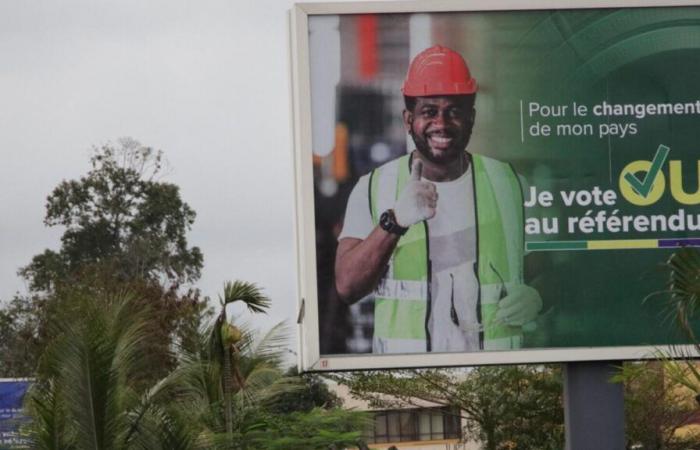Last Saturday’s referendum delivered its verdict: “ “Yes” emerges as the big winner, exclaims The Union in Librevillejust like abstention. They were asked to say whether “Yes” or “No” they adhered to the draft Constitution submitted for their consideration. On Saturday, Gabonese voters certainly did not rush into the voting centers, but according to the official results, the “Yes” vote delighted almost everything on its way. »: with almost 92% of the votes.
The fact remains that, despite this overwhelming score, “ distrust has come to light, estimates the site Gabon Review. Thanks to the constitutional referendum, the Gabonese expressed it. Solemnly. According to official figures, the participation rate rose to 53.54%, the “Yes” having won with almost 92% of the votes cast. (…) The new Constitution will therefore have been validated by less than 50% of those registered. Beyond the statistical disputes, a large section of the electorate refused to give its imprimatur to this text, even though it is so essential. Far from debates on calculation methods, many compatriots have succumbed to fatalism, choosing to stay at home, even if it means letting others decide for them and their future. ».
In any case, tip Young Africa« Once the final results are confirmed by the Constitutional Court, the next step will be the holding of a presidential election, scheduled for August next year, to bring an end to the transition. General Oligui Nguema has promised to return power to civilians, but he does not hide his presidential ambitions. “We are here to build the country and this country, we will build it together,” he recently declared ».
All powers?
The Country in Burkina is divided… On the one hand, the newspaper underlines “ the major democratic advance that the text brings: that of limiting presidential mandates. Under the terms of the new Constitution, the president is, in fact, elected for 7 years, renewable only once. ». But on the other hand, tip The Country, « the new text is not without raising serious concerns. The new Constitution abolishes the post of Prime Minister; which, de facto, concentrates all powers in the hands of the president even if there is a vice-president. We therefore fear that General Brice Oligui Nguema, who no longer makes a secret of his presidential ambitions, has cut himself a tailor-made suit. “. In short, the newspaper concludes, “ the sweeper is ready, contrary to his promises, to settle in the house after having swept it ».
Foot contamination?
Pour Ledjely in Guinea, the khaki power is establishing itself lastingly on the continent…
« In Gabon, we risk going from a total of 55 years of civil power – certainly of a single family – to military power. Because this new Constitution allows General Clotaire Oligui Nguema to run as a candidate. (…) Likewise, in Guinea, even if the President of the Transition had initially promised that he did not intend to run as a candidate, the signals which are today sent back through all the support movements which are evolving on the ground suggest that these promises no longer prevail. However, here too, in the absence of a real opposition, General Mamadi Doumbouya will win the next presidential election. And it will undoubtedly be the same in Mali and Burkina Faso, exclaims Ledjely. Especially since in these two countries, the security crisis will serve as a sufficient pretext to justify that the Transitional presidents, presented as more capable of facing such a challenge, still remain in place. To a lesser extent, the same arguments will prevail in favor of General Abdourahamane Tiani, in Niger ».
And be careful, warn Ledjely : « la perspective (of a khaki contagion on the continent) is all the more to be feared since at the global level, the democratic model inspired by the West is today shaken by the emergence of leaders very disinclined to conform to the principles which have served as standards since the Second World War . Feeling cheated by so-called professional politicians, the world is now turning to so-called strong and outspoken leaders. Even if they are eccentric, populist, autocratic or conspiracy theorist. Gold, sighs the Guinean sitein Africa, leaders who tick all these boxes are mostly found in the armies. So there are some reasons to worry ».






